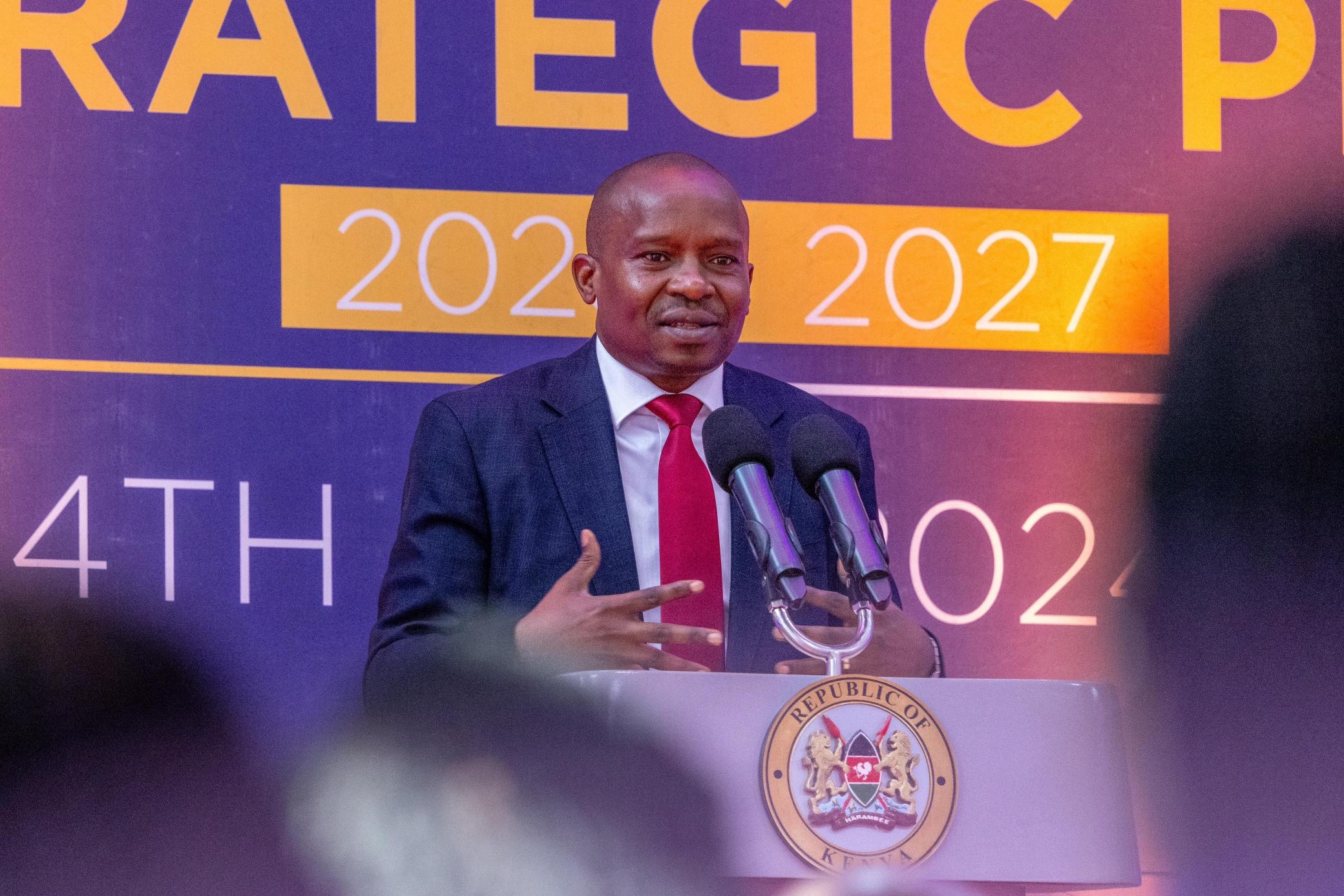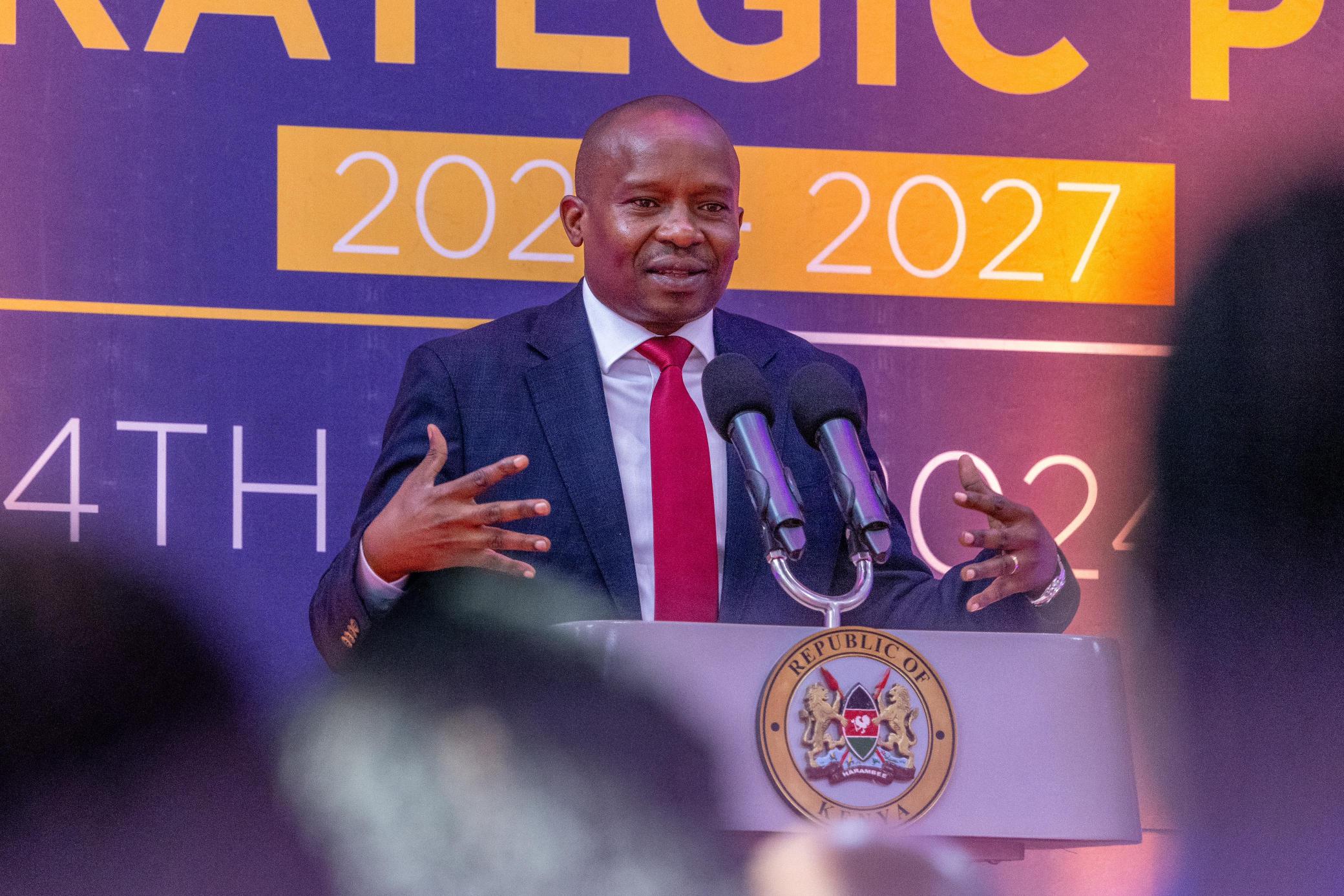

Deputy President Kithire Kindiki has called on the Judiciary to make timely judgments on public interest cases involving government programmes.
According to the Deputy President, these judgments must be merit-based and do not have to be in favour of the government.
Kindiki said this way, the government can be able to decide early enough whether to wait or channel the resources to other critical state programs.
He noted cases challenging programs financed by public funds should not be delayed for 10 to 20 years and then disposed of, saying that it delays the country’s development.
“Instead of a case that is a public interest matter involving huge government programmes and investment of public funds being delayed for 10 to 20 years, we are asking the Judiciary that we do not require a favourable judgment, let the judgment be on merit but please let the judgment be made fast enough so that we can decide whether to free the resources to other programmes or not, other than holding it back in endless injunctions, conservatory orders, and other things until it is disposed of 20 years later,” Kindiki said on Wednesday.
He spoke during the launch of the Office of Director of Public Prosecution’s Strategic Plan for 2023 – 2027, which he presided over.
Kindiki insisted on all arms of the government working together to help each other achieve a common vision.
He said all arms of government must do this without interfering with the independence of one another.
“We require convergence without interfering with any independent institution. We must find ways for the entire government, each arm facilitating the other to realise its vision. Parliament playing its role, the executive playing its role the Judiciary helping us by not also dragging government programmes and that discussion is ongoing,” the DP said.
He also noted that most independent commissions are misinterpreting their independence to mean not cooperating with other state agencies, he said this has in most cases ended up undermining the overall agenda of the government.
“The independence doctrine, though promoting the status of separate and distinct roles, is not mechanistic,” he said.
“The lines of demarcation must be viewed within a certain amount of pragmatism and cooperation, namely that independence of offices and institutions start and end with decisional, administrative, financial (budgetary) and operational autonomy.”













